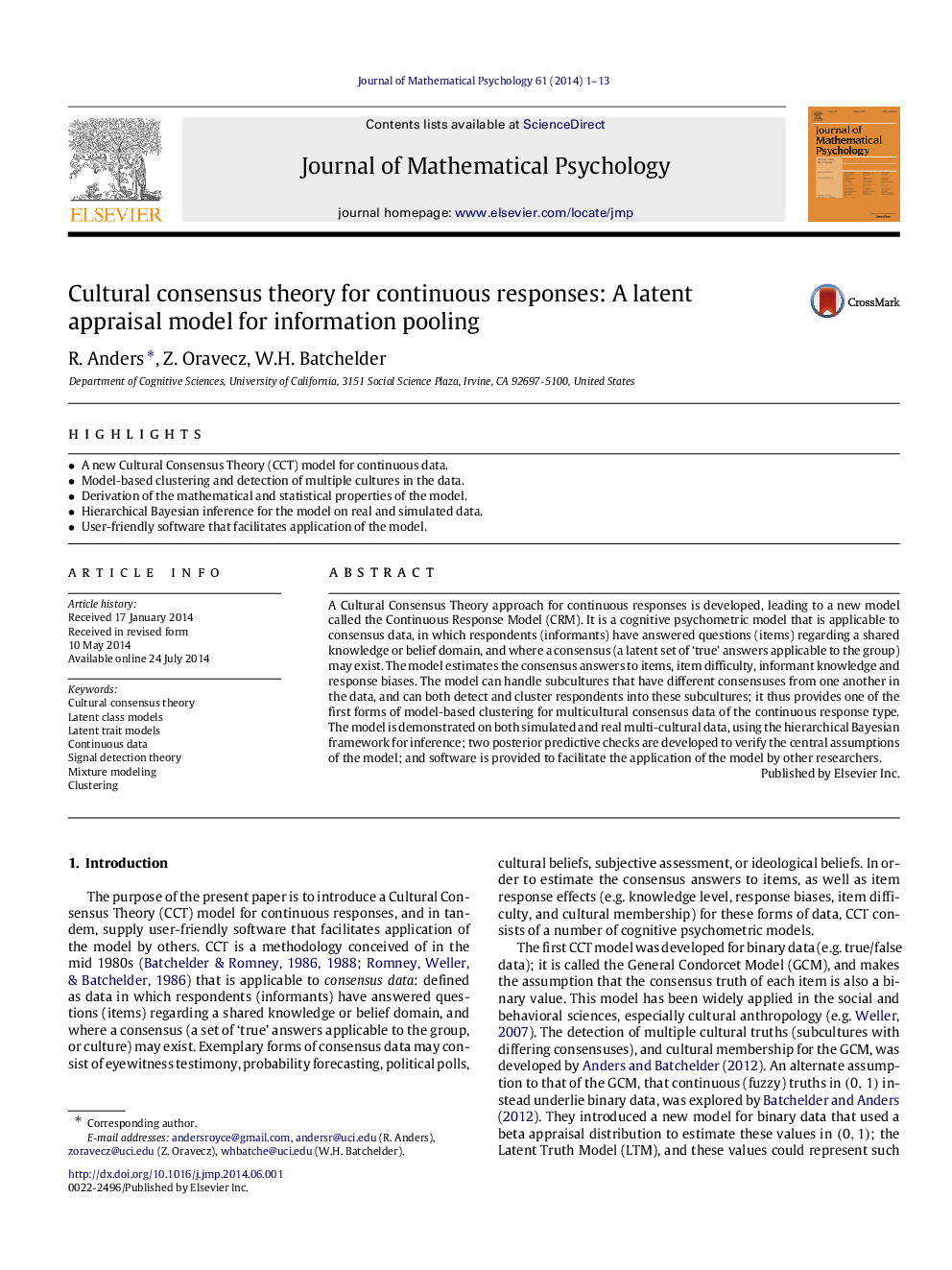| کد مقاله | کد نشریه | سال انتشار | مقاله انگلیسی | نسخه تمام متن |
|---|---|---|---|---|
| 326418 | 542414 | 2014 | 13 صفحه PDF | دانلود رایگان |
• A new Cultural Consensus Theory (CCT) model for continuous data.
• Model-based clustering and detection of multiple cultures in the data.
• Derivation of the mathematical and statistical properties of the model.
• Hierarchical Bayesian inference for the model on real and simulated data.
• User-friendly software that facilitates application of the model.
A Cultural Consensus Theory approach for continuous responses is developed, leading to a new model called the Continuous Response Model (CRM). It is a cognitive psychometric model that is applicable to consensus data, in which respondents (informants) have answered questions (items) regarding a shared knowledge or belief domain, and where a consensus (a latent set of ‘true’ answers applicable to the group) may exist. The model estimates the consensus answers to items, item difficulty, informant knowledge and response biases. The model can handle subcultures that have different consensuses from one another in the data, and can both detect and cluster respondents into these subcultures; it thus provides one of the first forms of model-based clustering for multicultural consensus data of the continuous response type. The model is demonstrated on both simulated and real multi-cultural data, using the hierarchical Bayesian framework for inference; two posterior predictive checks are developed to verify the central assumptions of the model; and software is provided to facilitate the application of the model by other researchers.
Journal: Journal of Mathematical Psychology - Volume 61, August 2014, Pages 1–13
